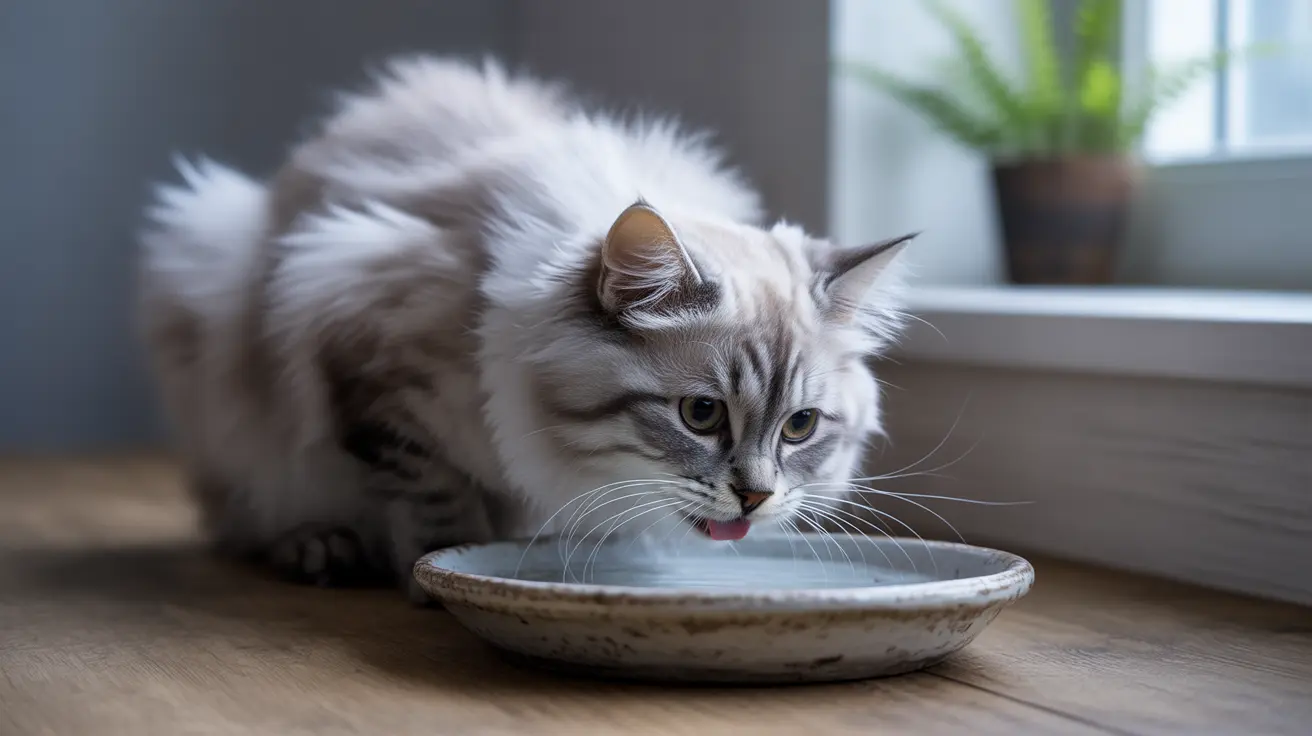When your cat starts drinking excessive amounts of water, it can be concerning for any pet owner. While cats typically maintain consistent drinking habits, a sudden increase in water consumption could signal underlying health issues that require attention. Understanding what's normal and what isn't when it comes to your cat's water intake is crucial for their wellbeing.
In this comprehensive guide, we'll explore the reasons behind increased water consumption in cats, help you identify when it's a cause for concern, and provide guidance on when to seek veterinary care.
Understanding Normal Feline Water Consumption
Healthy cats typically consume about 3.5 to 4.5 ounces of water per 5 pounds of body weight daily. This amount can vary significantly based on their diet type - cats eating wet food naturally drink less water than those on dry food diets. Environmental factors like temperature and activity levels also influence water intake.
To establish what's normal for your cat, observe their drinking habits over several days. This baseline knowledge becomes invaluable when detecting unusual changes in their water consumption patterns.
Signs Your Cat is Drinking Excessively
Excessive water consumption, known medically as polydipsia, often accompanies increased urination (polyuria). Key indicators include:
- Frequent visits to the water bowl
- Empty water bowls more often than usual
- Larger clumps in the litter box
- Drinking from unusual sources (faucets, toilet bowls)
- Increased urination frequency or volume
Common Medical Causes of Increased Thirst
Several health conditions can trigger excessive drinking in cats:
Kidney Disease
The most common cause in older cats, kidney disease impairs the body's ability to concentrate urine, leading to increased thirst to compensate for fluid loss.
Diabetes Mellitus
High blood sugar levels cause increased urination and subsequent thirst as the body attempts to flush out excess glucose.
Hyperthyroidism
An overactive thyroid gland increases metabolism and can lead to excessive thirst and urination.
When to Contact Your Veterinarian
Seek veterinary care if you notice:
- Sustained increase in water consumption for more than 24 hours
- Significant changes in urination patterns
- Weight loss or changes in appetite
- Lethargy or behavioral changes
- Vomiting or diarrhea accompanying increased thirst
Diagnosis and Treatment
Your veterinarian will likely perform several diagnostic tests, including:
- Complete blood work panel
- Urinalysis
- Thyroid function tests
- Physical examination
- Possibly imaging studies (X-rays or ultrasound)
Treatment depends on the underlying cause and may include medication, dietary changes, or specific therapies targeted to the diagnosed condition.
Frequently Asked Questions
Why is my cat drinking so much water suddenly?
Sudden increases in water consumption can be caused by various factors, including kidney disease, diabetes, hyperthyroidism, or environmental changes. Any sudden change warrants veterinary attention to rule out serious medical conditions.
How can I tell if my cat is drinking too much water?
Monitor your cat's water bowl levels, watch for increased urination, larger litter box clumps, and unusual drinking behaviors like seeking water from taps or toilets. You can measure daily intake by tracking water bowl levels over 24 hours.
What are the common medical causes of excessive water consumption in cats?
The most common medical causes include kidney disease, diabetes mellitus, hyperthyroidism, urinary tract infections, and liver disease. Each condition requires specific veterinary diagnosis and treatment.
How can I monitor and measure my cat's water intake accurately?
Fill water bowls to a specific level and measure remaining water after 24 hours. Account for any spills or multiple pets. Keep track of measurements for several days to establish patterns.
When should I take my cat to the vet if they are drinking a lot of water?
Contact your veterinarian if excessive drinking persists for more than 24 hours, especially if accompanied by changes in urination, appetite, or behavior. Prompt medical attention is crucial for early diagnosis and treatment.
Remember, while increased water consumption might seem minor, it can indicate serious health issues. Always consult with your veterinarian when you notice significant changes in your cat's drinking habits. Early detection and treatment of underlying conditions can lead to better outcomes for your feline friend.






